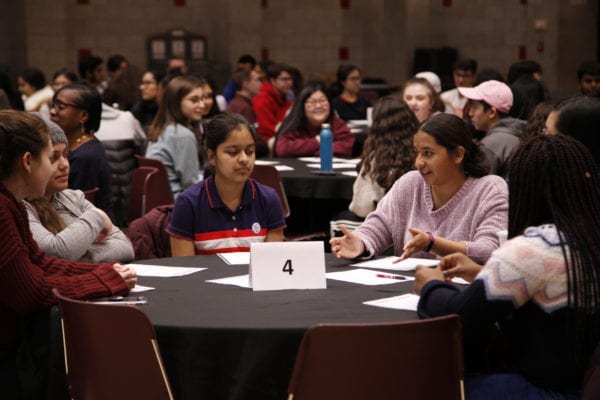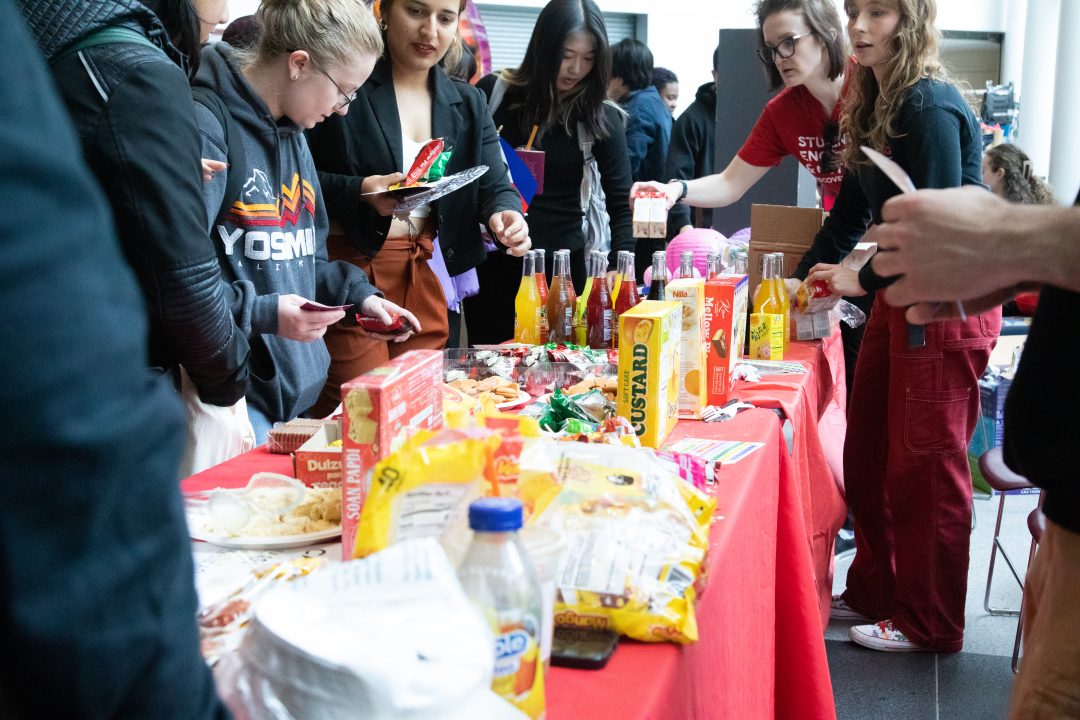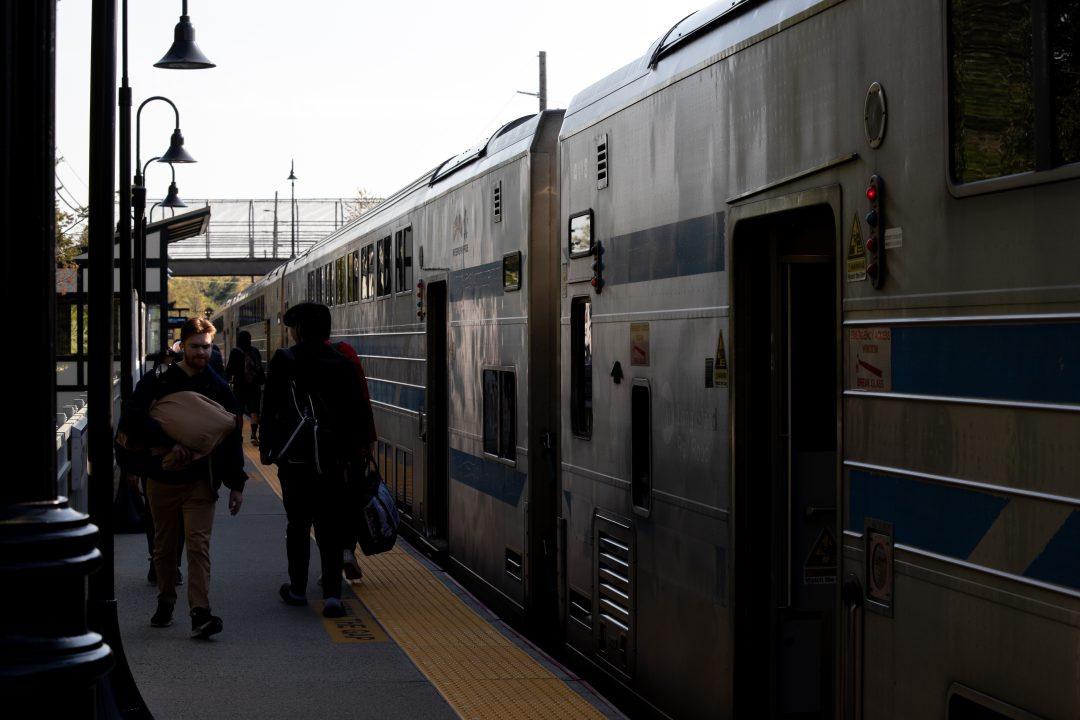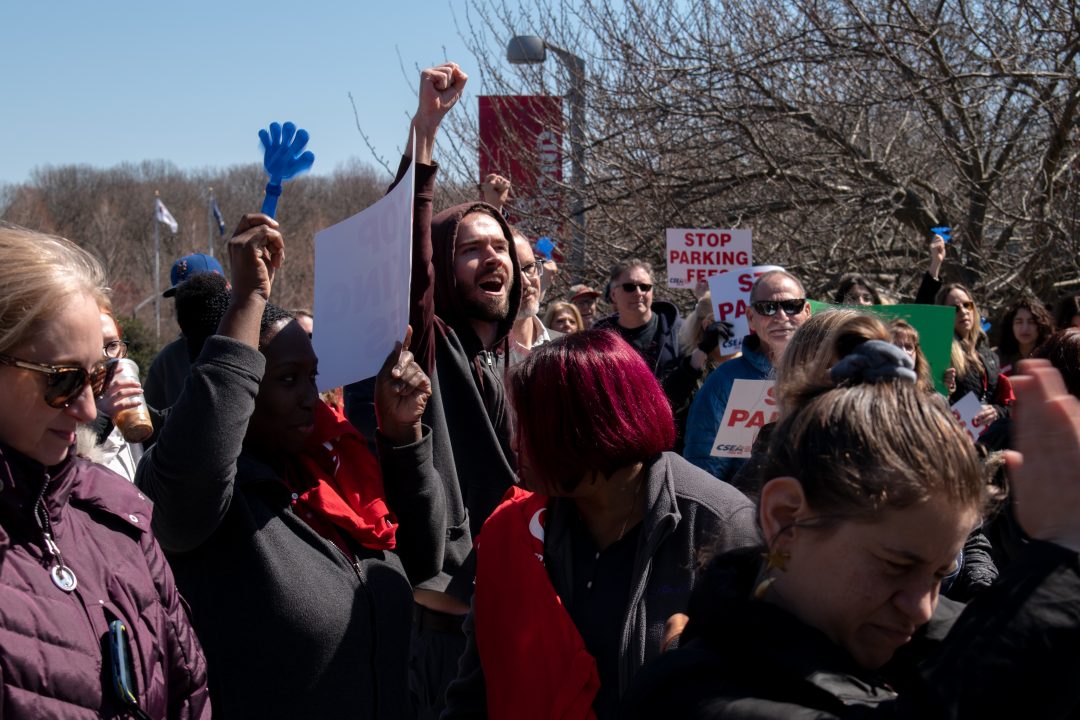
To foster discussion on fiscal policy, the Center for Civic Justice (CCJ) and Up to Us, a non-profit nationwide touring program dedicated to fiscal education, held “The Economy and the COVID-19 Pandemic” community dialogue on Nov. 10.
The event offered group discussions and games related to the US economy and fiscal policy for the about 50 people in attendance. The CCJ coordinated the function with Up to Us, run by non-profit organization Net Impact, advocating for “building a sustainable economic and fiscal future.” Net Impact, a partner of CCJ, has said its 2020/2021 theme is “Reimagining Capitalism.”
In addition to its Net Impact association, Up to Us is partnered with The Peter G. Peterson Foundation, established by Republican former Secretary of Commerce Peter G. Peterson, and Clinton Global Initiative University, founded by Democratic former President Bill Clinton.
Anne Green, CCJ’s undergraduate student director and Up to Us’ campus leader, said she hoped the conversation would prompt students to address how the US economy has affected their lives during the COVID-19 pandemic.
“We don’t want them to shy away from these kinds of topics,” Green said. “We want them to feel like simply their worldly experiences are enough to be able to engage in these sorts of conversations.”
At the beginning of the event, students were asked to sign an Up to Us pledge via a QR code. The pledge vows to “consider candidates and policies through a lens of fiscal integrity to ensure that we are investing in our generation’s future in a sustainable way.” It has received over 50,000 signatures from students nationwide and is sent to signatories’ local representatives.
Students sat at tables helmed by student facilitators and listened to lectures and PowerPoint presentations before holding discussions on assigned topics or playing games pertaining to a presentation’s themes. Decreasing the United States’ national debt was a major topic of the night, with guest speakers and facilitators addressing it at length. The event organizers stressed that the event and Up to Us is “non-partisan” and urged students to avoid political arguments.
Hugo Benitez-Silva, Stony Brook’s associate professor of economics, gave a presentation on the national debt. He discussed the benefits of COVID-19-era government safety programs for struggling Americans while raising the question of whether the programs might convince people that “maybe I can wait to get a job.”
Benitez-Silva criticized the Trump administration for its handling of the pandemic. “The previous administration decided to do something that economies do very often, which is ‘let’s throw money at the problem,’” Benitez-Silva said. He also stated that the Biden administration “threw money at the problem” but “did it in the right way,” stressing a stock market boom following an initial dip during the pandemic.
Some organizers suggest that long-term government pandemic relief was beneficial, yet if unchecked might increase the national debt.
“I definitely think there’s a middle ground that we can achieve towards helping people in the present and helping people in the future,” Eshwin Varghese, a sophomore biology major and undergraduate CCJ intern, said. Varghese also added that although stimulus checks were important, he believes many people don’t want to increase the national debt because it “would impact future generations.”
According to Forbes, economic impact payments have likely increased personal income and economic growth. The Congressional Budget Office says the CARES Act’s stimulus checks increased economic output by about 0.6%.
Students talked about economic policy, but also about how the pandemic has affected their lives. Yeuyi Chen, a sophomore economics major, likes “the environment of online learning,” while Sowad Ocean Karim, a junior political science and biology major, complained about a “lack of transition” between completely online learning and in-person studying. Juliette Passer, a political science lecturer and lawyer, pointed out that while people reap the benefits of not commuting, young people need in-person work experience.
One of the function’s most memorable parts was when attendees played Spent, an online fiscal responsibility game where a player has to survive a month without running out of $1,000. Obstacles include insurance premiums, potentially surrendering a pet, the player’s child starving at school, transportation costs and the possibility of “your head is burning up” because of a fever in info-screens recalling the classic video game Oregon Trail’s “you have died of dysentery.” Chen criticized the game’s lack of context for numbers, saying “I need more info.” Upon finishing Spent, Passer bluntly said “that was terrible.”
The event was the first in-person entry in CCJ’s Community Dialogue series since the pandemic began. The last non-virtual discussion was in February 2020, when CCJ hosted a conversation on literacy and fake news. “There’s nothing like being in person and having presenters and watching videos and being able to share as a wider group what we feel,” Green said.
The Community Dialogue series is ongoing and will be hosted again in the spring 2021 semester.
















